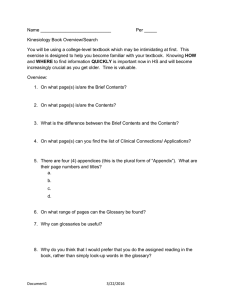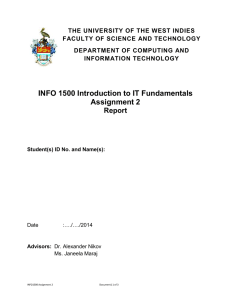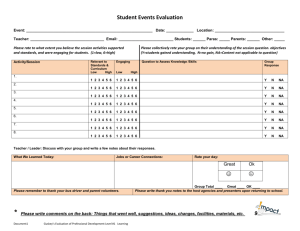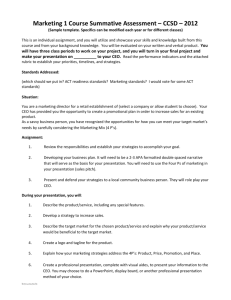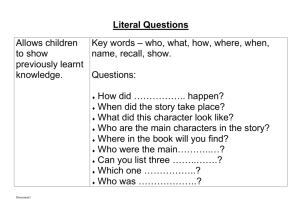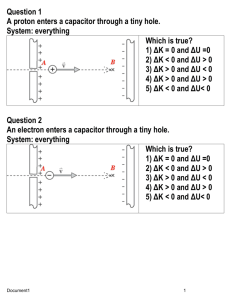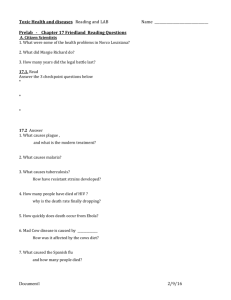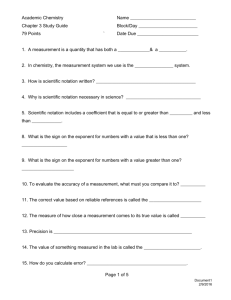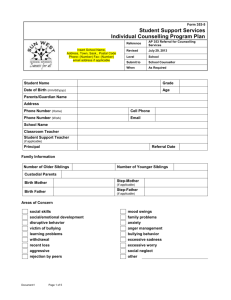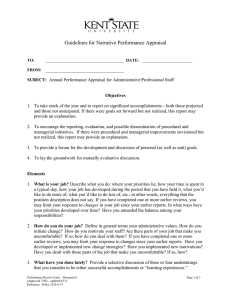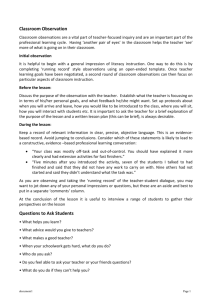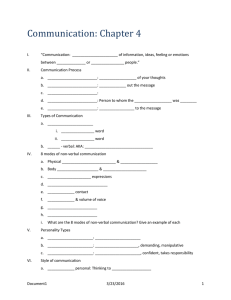Section 1.2 Study Guide
advertisement
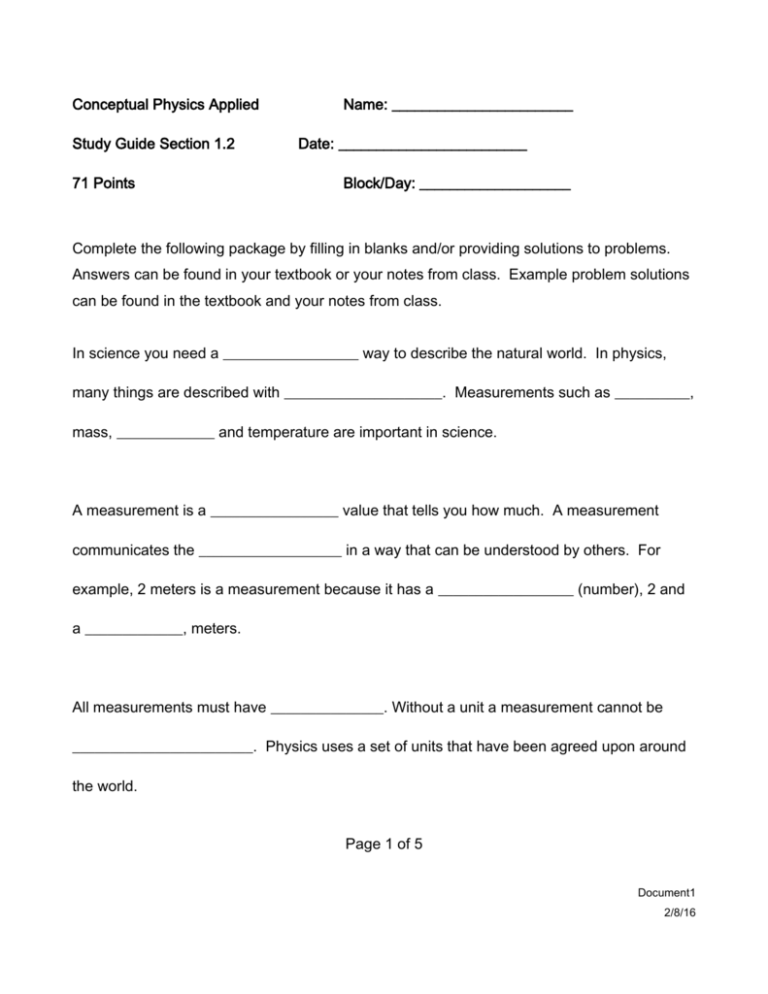
Conceptual Physics Applied Study Guide Section 1.2 71 Points Name: ________________________ Date: _________________________ Block/Day: ____________________ Complete the following package by filling in blanks and/or providing solutions to problems. Answers can be found in your textbook or your notes from class. Example problem solutions can be found in the textbook and your notes from class. In science you need a __________________ way to describe the natural world. In physics, many things are described with _____________________. Measurements such as __________, mass, _____________ and temperature are important in science. A measurement is a _________________ value that tells you how much. A measurement communicates the ___________________ in a way that can be understood by others. For example, 2 meters is a measurement because it has a __________________ (number), 2 and a _____________, meters. All measurements must have _______________. Without a unit a measurement cannot be ________________________. Physics uses a set of units that have been agreed upon around the world. Page 1 of 5 Document1 2/8/16 Distance is the amount of separation between __________ unique points. You can also think of distance as how far apart __________________ objects are. Distance is measured in units of ______________________. Some commonly used units of length include inches, miles, _________________, kilometers and ________________. It is important to always specify which ____________________ unit you are using for a measurement. The __________________ System is used for everyday measurements in the United States. During the 1800s, a new system of measurement - The ________________ System – was developed in France. The goal of this system was for all units of measurement to be related and for the units to form a base-_______ or _______________________ system. In the 1960s the Metric System was revised and simplified, and a new name was adopted – The International System of Units or ______________for short. Almost all fields of science worldwide use SI units because they are _______________ to work with. In SI, there are ____ millimeters in a centimeter, _________ centimeters in a meter and ____________ meters in a kilometer. Factors of 10 are easier to ________________ and work with __________________. We often want to know how things change over ______________. Many laws of physics tell us how things _________________ over time. We describe a quantity of time. The question Page 2 of 5 Document1 2/8/16 “____________ much time?” is asking for a ______________ of time. A quantity of time is also called a time ___________________. Any calculation involving time that you do in physics will use _____________ intervals, not time of ___________. Many problems in science use time in _________________________. The ______________________ is the basic unit of time in both the SI and the English systems. There are 60 seconds in one ______________ and 3,600 seconds in an ___________. In many experiments, you will observe how things __________________ with time. For example, when you drop a ball, it _________________ to the ground. The graph shows that it takes the ball about 0.45 ________________ to fall a distance of 1 ________. When making graphs of results from experiments, the time almost always goes on the ____________________ or ___________. The words _______________ and precision have special _____________ in science. Accuracy is how close a measurement is to its ____________________ or “true” value. Precision does not have the _______________ meaning as accuracy. Precision describes how close together Page 3 of 5 Document1 2/8/16 several _________________________ measurements or events are to one another. Good _________________ Poor _______________ Poor __________________ Good _________________ Good ______________ Poor __________________ _____________________ is another important term to understand when you are working with measured quantities. Resolution refers to the _______________________ interval that can be measured. The resolution of a metric ruler is _________________ mm. You can think of resolution as the “______________________” of a measurement. A measurement with lots of _______________________ is a very “sharp” measurement. All measurements involve a degree of ______________________. The object in Figure 1.11 is definitely longer than 2.6 ____________. Not every one would agree on the third digit of the Page 4 of 5 Document1 2/8/16 measurement. One person ________________ read the measurement as 2.63 cm. Another might ______________ it is closer to 2.65 cm. It is ______________ to make a measurement of the exact true value of anything, except when ____________________ “things.” Using the ruler in Figure 1.11, the best answer for the length of the paper clip is _________________ cm. The last digit, _______, represents the smallest amount, 0.05 cm, and it is ____________________. Page 5 of 5 Document1 2/8/16
